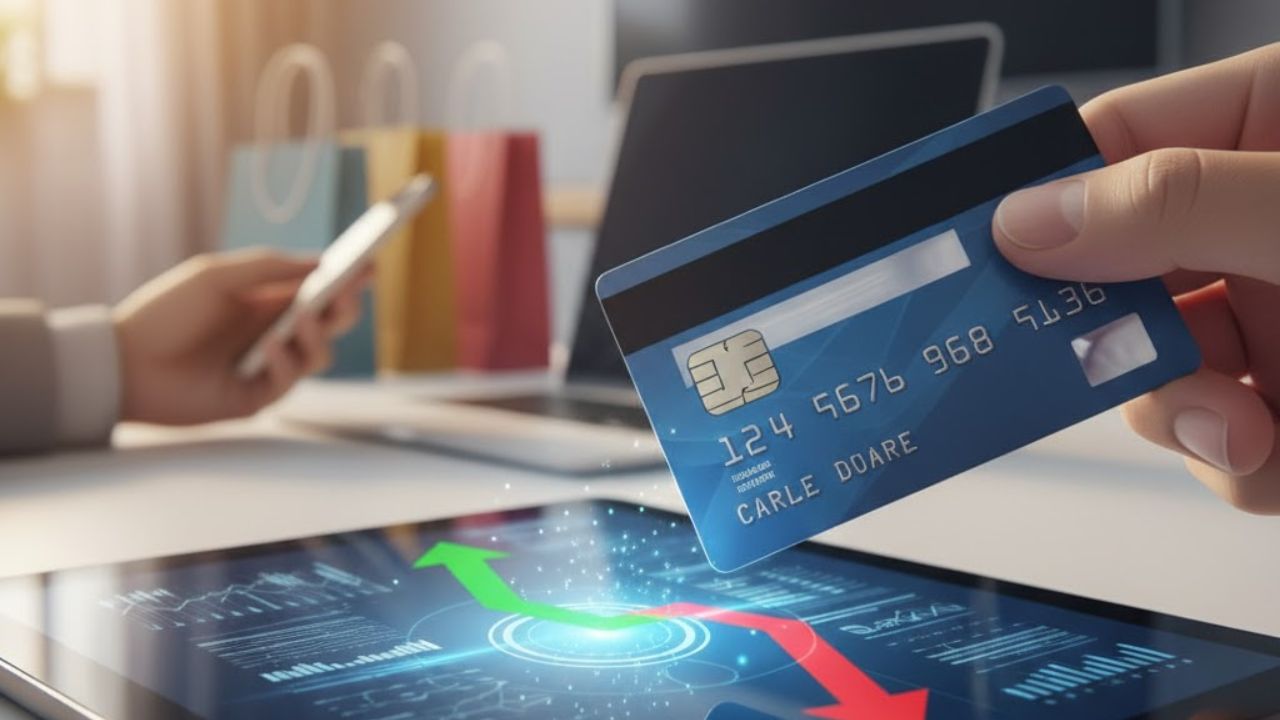Debit Card EMI
The way of shopping in the market has changed rapidly. There was a time when whenever there was mention of buying anything on installments (EMI), the first thought that came to mind was ‘credit card’. But now it is not so. Almost all the big banks including HDFC Bank, SBI, Axis and ICICI Bank have started providing ‘Debit Card EMI’ facility to their customers. This simply means that now you can easily bring home an expensive mobile, laptop, TV or any other gadget in installments even without a credit card.
This facility is no less than a boon for those who do not have a credit card or who do not want to have a credit card. But amidst this convenience, there is a big and important question hidden, does this EMI taken from debit card have any effect on your CIBIL or credit score?
How to get EMI without credit card?
This facility is usually ‘pre-approved’. The bank sets an EMI limit on the basis of the balance in the savings account of its customers, their transaction history and their past relationship with the bank. This limit can range from Rs 5,000 to Rs 1 lakh or more.
When you buy any expensive item, you get the option of ‘Debit Card EMI’ at the time of payment. You can choose the installment period as per your convenience (like 3, 6, 9 or 12 months). Its most important thing is that you do not have to wait for any credit card bill. The installment amount is deducted directly from your bank account on the fixed date of every month.
This facility is a ‘double-edged sword’ on CIBIL.
Now coming to the biggest question whether it affects your CIBIL score. In most cases, debit card EMIs do not have a direct impact on your credit score, as it is not a traditional ‘credit line’ (like a credit card or personal loan). This is a facility provided on the basis of your own account.
But, there is a big catch here. Some banks and financial institutions consider these debit card EMIs as ‘short-term consumer loans’. When the bank considers it a loan, it can report the information to credit bureaus like CIBIL, Experian or Equifax. If the bank is sending your EMI information to the bureau, then it can affect your credit score in two ways. This can be good for you and also very bad. It completely depends on your payment discipline.
‘Golden chance’ to improve CIBIL score
This facility proves beneficial for you when the bank reports your EMI information to the credit bureaus and you pay every installment on time. If you do not delay paying even a single installment, it is recorded as a ‘positive’ behavior on your credit report. This shows the bureau that you are a responsible borrower and meet your financial commitments on time.
One miss and score ‘crash’
The other side of this coin is very serious. If your bank reports this EMI in CIBIL and you miss paying any monthly installment on time, it can have a negative impact on your credit score. Suppose, there is not sufficient balance in your savings account on the EMI due date and the payment ‘bounces’, then it will be recorded as ‘Missed EMI’ or ‘Late Payment’.
This is a ‘red flag’ for CIBIL score and can cause your score to drop rapidly. It is like a black spot on your credit report, which affects your financial reputation in the long run. Not only this, even if the bank does not report your EMI information to CIBIL, the bank will still charge you a penalty if the payment fails. Also, repeated payment failure may result in you being recorded as a defaulter in the bank’s own ‘Internal’ rating. Because of this, if you ever need a loan from the bank for any important purpose, your application may be immediately rejected.
